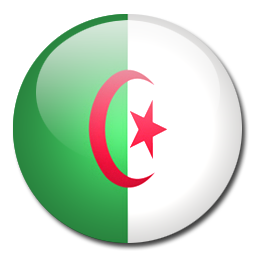
ROME RATHER THAN YOU
Algeria/France, 2006, 111 minutes, Colour.
Directed by Tariq Teguia.
This is an experimental Algerian film written and directed by Tariq Teguia. It uses many long takes giving the opportunity for the audience to reflect on what they are seeing and try to assess the characters. In terms of plot, it is set on the Algerian coast, focuses on ordinary people and the details of their way of life. It also focuses on young people who are contemplating migrating and in need of passports – legally or illegally. There are also implications of violence with some of the characters with guns and becoming involved in fights. Differences between the generations in terms of interpretation of Muslim law and practice are also significant.
However, the film will not appeal to a wide audience – but requires an audience which is interested in the themes, issues, Islam and the repercussions of these themes at the end of the 20th century and moving into the 21st.
1.An experimental film? From Algeria? For Algerian audiences? European financial support? For the art film circuit and festivals?
2.The style of the film, the very long takes? Audiences having time to watch, think, contemplate – or be distracted? The cumulative effect of the long takes, the mundane detail? The film coming alive with the police came to the café? Activity, non-activity? The silences? The music?
3.The Algerian locations, the town, the suburbs, the wharves, the factories, the beach, the cafés? Authentic?
4.The purpose of the film – the 1999 setting, the slow war, curfews, martial law? The effect on young people? Their all having been to Europe, coming back or being deported? Their wanting to get to Europe again or Australia or America? The dreams? Needing the documents and the money? Possibilities and impossibilities?
5.The focus on Zina, the slow opening, her making the coffee, going to work, walking along the street with Kemal? At work, in the clinic? His inviting her out, looking for his friend, sitting in the car, coming out, walking along the beach, the discussions and silences on the beach, the kids playing soccer and their joining in, some joy and exuberance? Having the coffee in the café? The police and the brutality, their trying to shame Zina because of her wearing jeans, being out with men? The curfew and their having to spend the night with the strangers, sitting silently? Searching for their friend, finding the dead body, her covering it? Finding the passport and the Green Card, giving them to Kemal? Zina and her driving the car, Kemal being shot, her continuing to drive – and the cut ending?
6.Kemal, getting the photo for his passport, the tropical backgrounds? Meeting Zina, walking with her? His not being employed, borrowing his uncle’s car? Family relations? The gun? Seeking his friend, the possibility of going abroad? Standing with Zina looking at the ships? His taking Zina to the sea, finding his engineer friend, at the beach, the ball, the game, the café, his documents being taken, his being interrogated? Being lost, the curfew, staying the night, searching for the friend, finding the body and his being sick? The Green Card, the passport, the possibilities – and his being shot?
7.The engineer friend, his work on the building site, his going out with Zina and Kemal, joining in the activities, getting drunk with his friend the baker, their dancing to the music? Staying in the house? The baker, letting them in with the curfew, his work, drinking, the music?
8.The families, the older generation, their criticisms of the younger generation, leaving Algeria, not following strict Muslim law? The uncle and the car? Zina’s mother and father? The father not accepting her working?
9.The background of the young men, their ambitions, their dreams? The police arriving at the café, the very long take, improvised or acted, the power of the film? The police and their brutality, their words, the interrogations, the documents, the young people being helpless? Their being kept in the police station, their being let go after the curfew?
10.The insertion of texts for reflection about globalisation, about migrants, goals in life? A film about hopes at the end of the 20th century? The dashing of dreams at the beginning of the 21st century?